STORIES OF REBIRTH
STORIES OF REBIRTH
Botanical Shakespeare
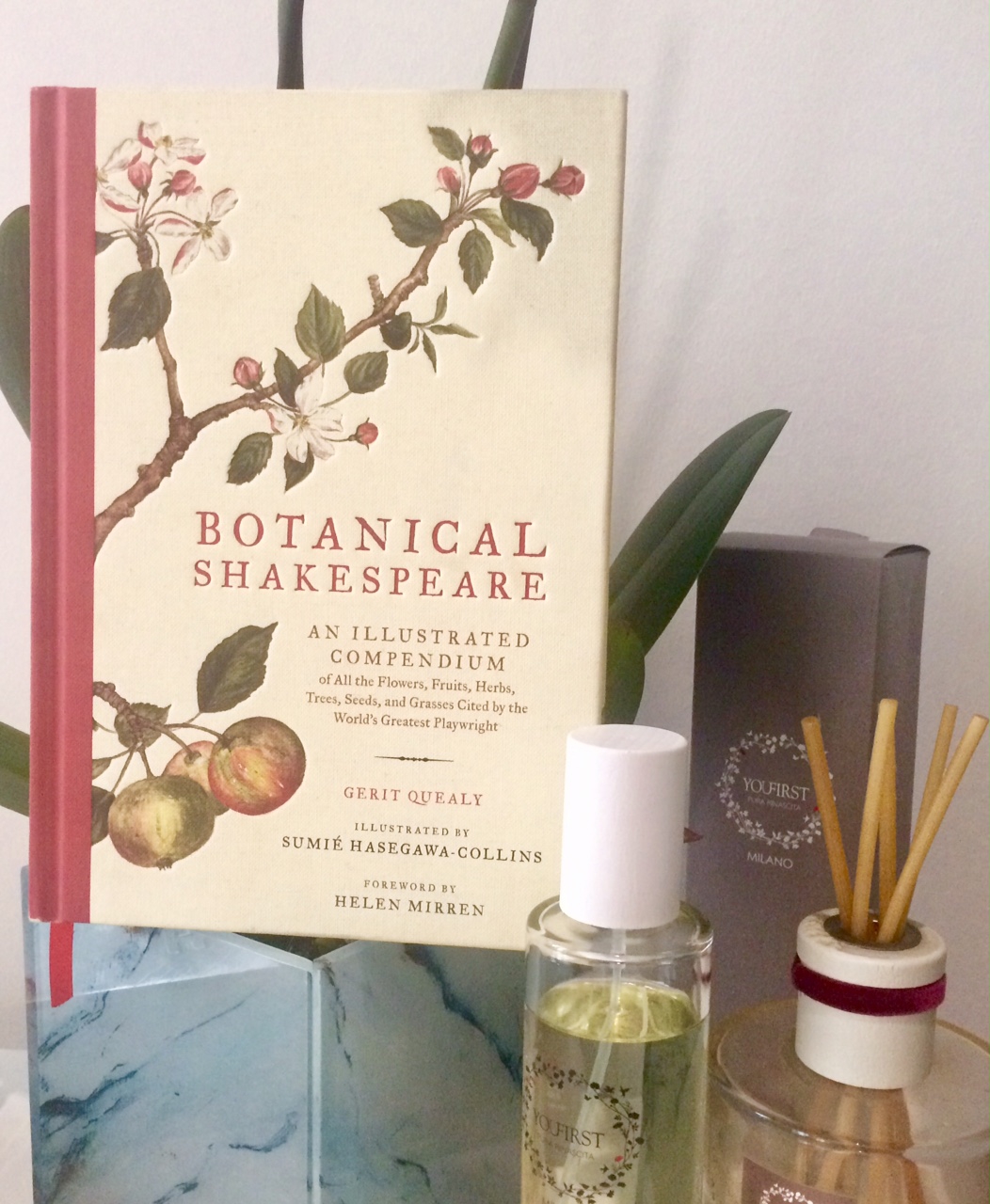
“Nature herself was proud of his designs, and joy’d to wear the dressing if his lines”
Ben Jonson- First Folio of Shakespeare
A stunning collection of flowers, fruits, herbs and trees mentioned in Shakespeare’s works, illustrated by the japanese artist Sumiè Hasegawa-Collins, who traced beautiful designs.
The botanical expert Gerit Quealy enriched the beautiful images with information, creating a real compendium of plants. The aim of the book is to put a “face”, as the Author says, with the plant name, paired with the attendant quotes, alphabetically reunited.
The only problem with Shakespeare, Quealy says, is that he is so familiar that he’s too familiar! “Even little kids seem to know –to be or not to be- even if they don’t know why or how; it’s grained with the culture.” As by Poet Robert Graves “The remarkable thing about Shakespeare is that he’s really very good…in spite of all the people who says he’s very good.”
This enchanting collection is also enriched by the introduction of Helen Mirren where she says that “this graceful volume is the marriage of Shakespeare’s words about plants and the plants themselves.” Enjoy your reading!
Gerit Quealy
BOTANICAL SHAKESPEARE
An illustrated compendium
Illustrated by Sumiè Hasegawa-Collins
Foreword by Helen Mirren
STORIES OF REBIRTH
FROM FRIDA WITH LOVE
"Brother: I cannot tell you anything about your happiness. What can one say when life begins? ... " Frida writes this in August 1927 to Lira (whom she kindly called Chong Lee for his strong passion for Chinese culture) one of her friends-lovers-allies. The collection of letters contained in this book, many unpublished and translated for the first time in Italian, can help to understand the main characteristic of Frida Kahlo's profile: heart, and its versatility. She was a daughter, an artist, a wife, a friend, a lover, a confidant, a militant politician, a theorist, an agitator, a renewer, a woman of her time.
Through these letters we discover the rare world of Frida, a world without rules, almost exclusively interior, a world made up of our dreams and our fears, a reflection of our moods. The letters also recount the break before and after the frightful incident occurred to Frida, transforming the cheerful and enchanted teenager into a character of tragic grandeur, always and in spite of everything able to maintain a deep desire to live.
The selection is curated by Diego Sileo, theorist and art historian, curator of the PAC (Contemporary Art Pavilion in Milan), whose work is focused on experiences and theories related to performance and body poetry. He has designed, among others, the exhibitions of Vanessa Beecroft, Yayoi Kusama, Franko B and curated the personal exhibitions of Marina Abramović and Regina José Galindo. As a student of the processes of aesthetic creation in South America, he specialised at the University of Mexico City and University of Buenos Aires, and in 2010 he was part, the only European member, of the research project on the new archive of Frida Kahlo and Diego Rivera discovered in Casa Azul. A unique and deeply passionate guide, able to open the heart of Frida ... and, we hope, a little bit of ours too. Enjoy your reading!
Diego Sileo
FROM FRIDA WITH LOVE
Frida Kahlo’s letters
Curated by 24ORE CULTURA
STORIES OF REBIRTH
The art of cultivating the garden and oneself
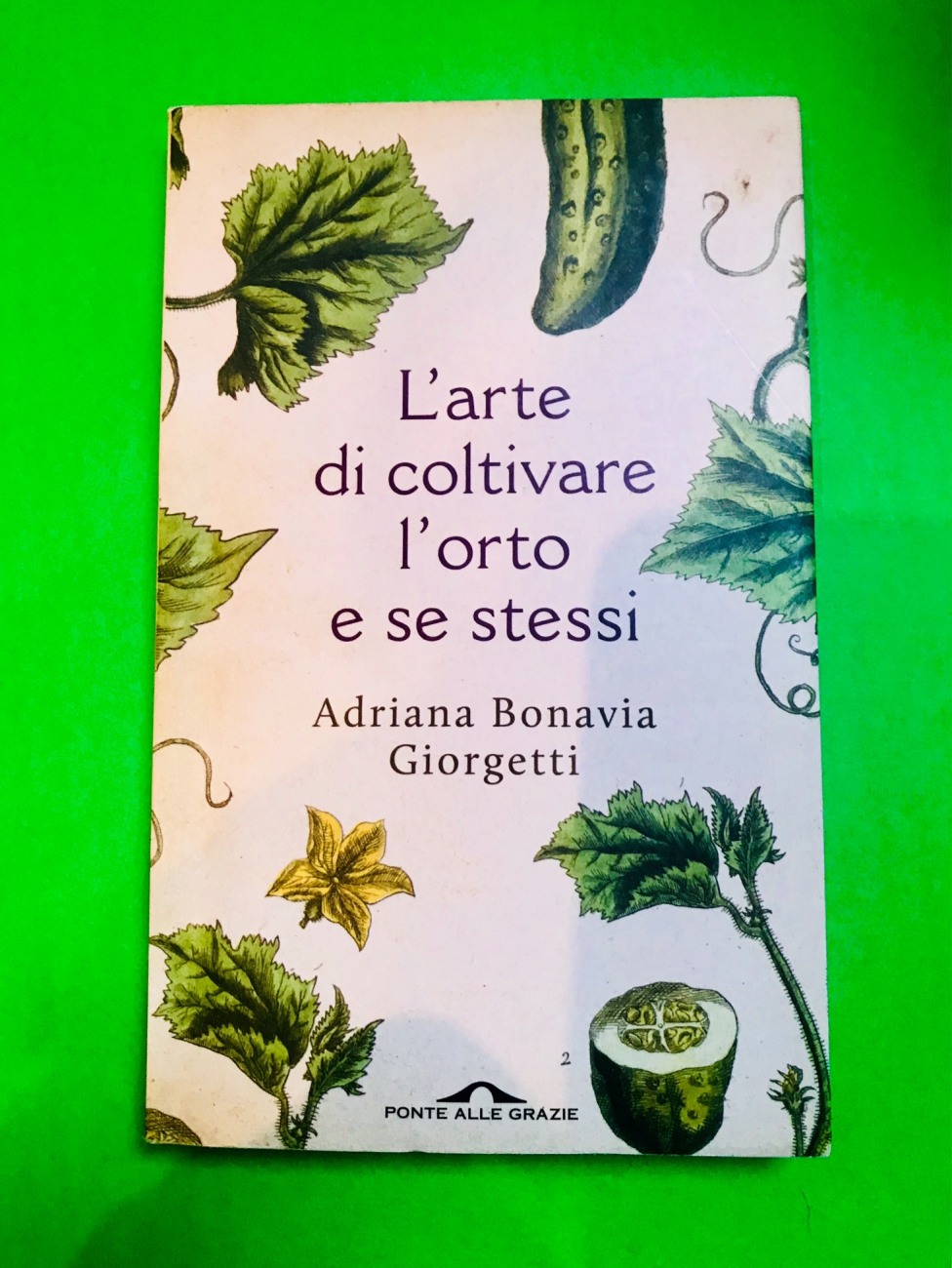
"If you decide to play, play it well." Coherent to this motto, the author begins telling us her first, unexpected, approach with the art of the cultivation. Facing a ground that risked to become overgrown and abandoned, she couldn’t stand it and commits to keep it alive. Thanks to her skilled hands, the ground lived a new happy season. It begins from this unexpected event the experience of the writer with gardening and with the dimension of farming, so tied up to the earth but at the same time - she discovers - extremely close to the spirit. Educating the earth, the Man educated itself, or as a Greek philosopher wrote "the man is himself the field to be cultivated, the good seed and the experienced farmer."
The trip in which the author drives us is so fascinating, going through the details of seeding, the different steps of growth from the seed to the vegetable, in the always fundamental care (quoting Simone Weil "Never, in any case, a true effort of attention must be wasted): Care as exercise and daily appointment. Taking care of a garden is a way to love and to take care of Life. Care exemplified in to giving water, supporting, shearing and so on…because what matters is not to succeed but the entire process of caring of as base that the human existence makes possible properly as “human”. Through the description of these small but concrete and continuous gestures of love, through the history of parsley and the zucchini, it may seem paradoxical but in reality we fully understand the sense of Life and its complete dimension which, as Panikarr says, “is neither pure contemplation neither action alone; rather it is the contemplative action and the active contemplation, a non-separated life. Its name is wisdom.”
Adriana Bonavia Giorgetti
L’arte di coltivare l’orto e se stessi (The art of cultivating the garden and oneself)
Ponte alle grazie
STORIES OF REBIRTH
THE ART OF SWIMMING
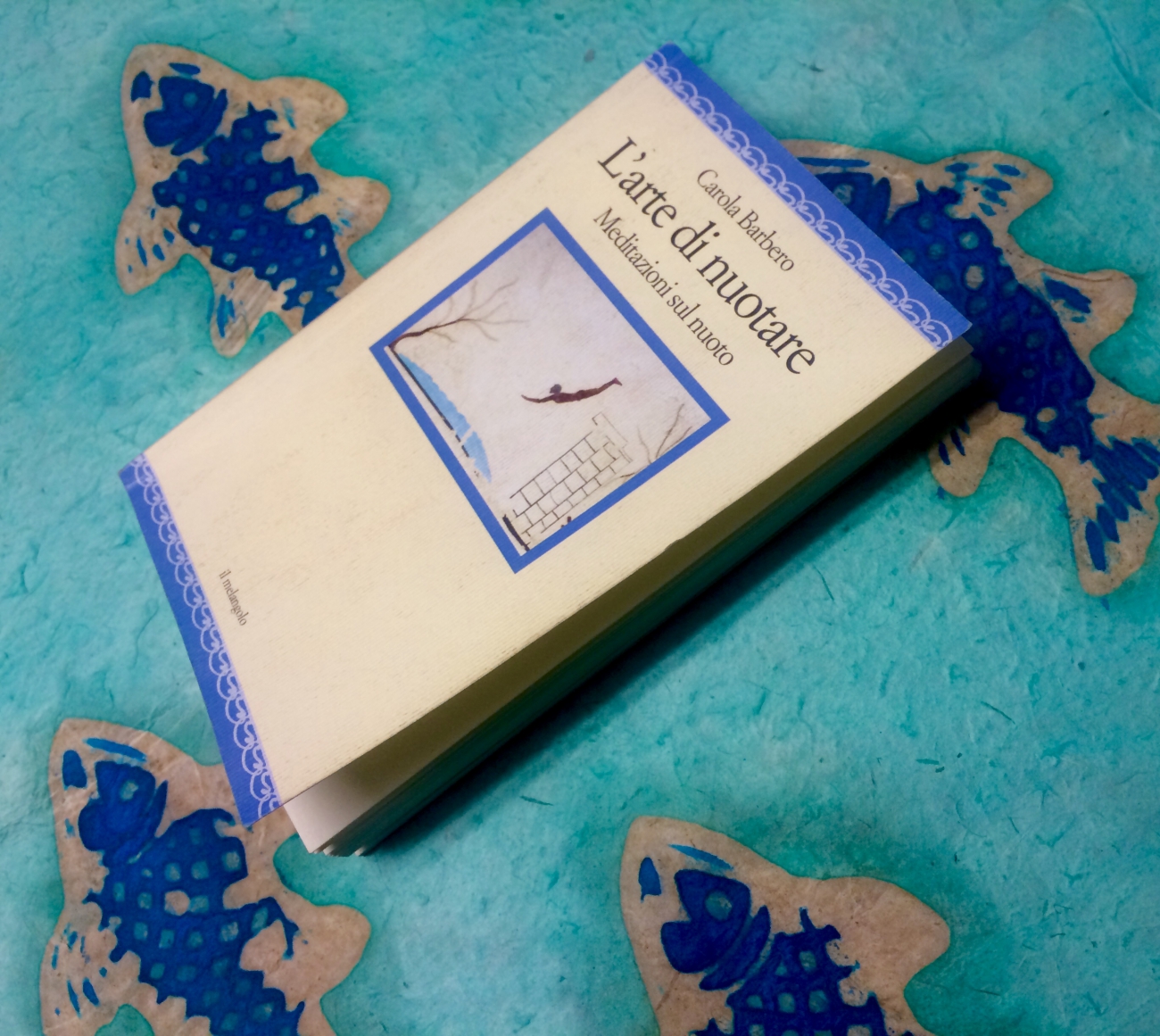
"A dive and everything disappears: the world is put in brackets until the next breath."
Wonderful essay dedicated to those who love water but also to those who simply want to take some rest and think of the feelings that this natural element communicates to us, L’arte di nuotare (i.e. “the art of swimming”) takes us by the hand and makes us feel immediately immersed in a blue world. "Those who swim," says the author, "resemble the flowing of life and the five senses become one." Water encircles all the body, giving a sense of peace and protection, removing the worries and noises imposed by the world.
Through a deep analysis of the various natative practices, from diving to apnea, crawl to dolphin, reaching the “finish line”, this delightful pamphlet tells us how special is the emotion the swimmer feels, who - in fact - comes out of the water smiling. A calm serenity and a sense of light fullfilment accompanies us all the time after practicing, no matter where you have been swimming (another theme of the book is that of the places where to swim; seas, rivers, lakes and pools).
Immerse yourself then, and become "liquid thinking"! Happy Rebirth!
Carola Barbero
L’ARTE DI NUOTARE
Meditazioni sul nuoto
Il melangolo
STORIES OF REBIRTH
VENICE EDITION: DOWNSIZING
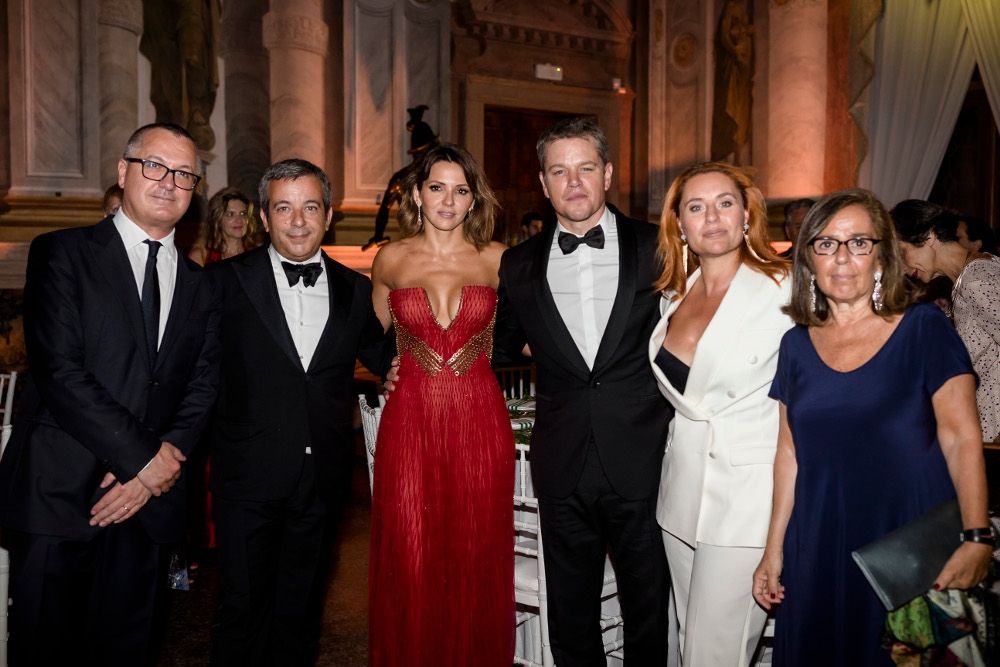
... What if rebirth means to shrink and become 12-cm-high?
The question at the basis of Downsizing, Alexander Payne's new film, which opened the 74th Venice Film Festival, is not really simple.
Set in a dystopian future, the film begins with the choice of the Safraneks (played by Matt Damon and Kirsten Wiig) to join the project of becoming small (i.e. downsizing), hoping for a better future ... but something unexpected will happen that will open a to a series of wide-ranging reflections: the more humane and "small" themes related to the story of the protagonists will intertwine with social, political and economic messages, linked to the challenges and concerns we all read daily (overpopulation, environmental disasters, sharp contrasts between rich and poor people).
Will there be a happy end? There is no certainty but several opportunities of introspection and analysis are offered to us with this work, accompanied by some light and funny moments thanks to Dusan's character, played by the magnificent Christoph Waltz, and the irrepressible Vietnamese activist Ngoc-Lan, played by actress Hong Chau.
Enjoy!
Downsizing
directed by Alexander Payne
with Matt Damon, Kirsten Wiig, Hong Chau, Christoph Waltz
STORIES OF REBIRTH
Aging in the Garden
Gian Lupo Osti, an renowned protagonist of Post-War Italian industrial recovery and manager of many multinational companies, is a good example of environmental harmony. Passionate about woods and plants since childhood, he maintains this naturalistic interest alongside his professional activities.
His love for peonies in particular drives him to exotic researches, especially in China, where professional botanists dedicated him a particular variety he has discovered (peonia ostii).
This diary is a set of memories and wise reflections on the respect for the life cycle and on the teachings, both gentle and essential, that nature simply offers us with its existence.
"However, we have not yet completely digested and made ours the common origin of life. We like too much to consider us, the mankind, as something absolutely incomparable and exceptional. Yet, if we observe elementary facts, under everybody’s eyes, water is necessary for the life of every living thing, whether it may be plants, animals, or men. And death is also the common destiny of every living thing ... I find this affection very gratifying".
Have a nice Rebirth, therefore: Nature is always a great teacher.
Gian Lupo Osti, Ageing in the garden - De senectute in horto.
Edizioni Ponte alle Grazie
STORIES OF REBIRTH
Melville's masterpiece and the story of a great journey
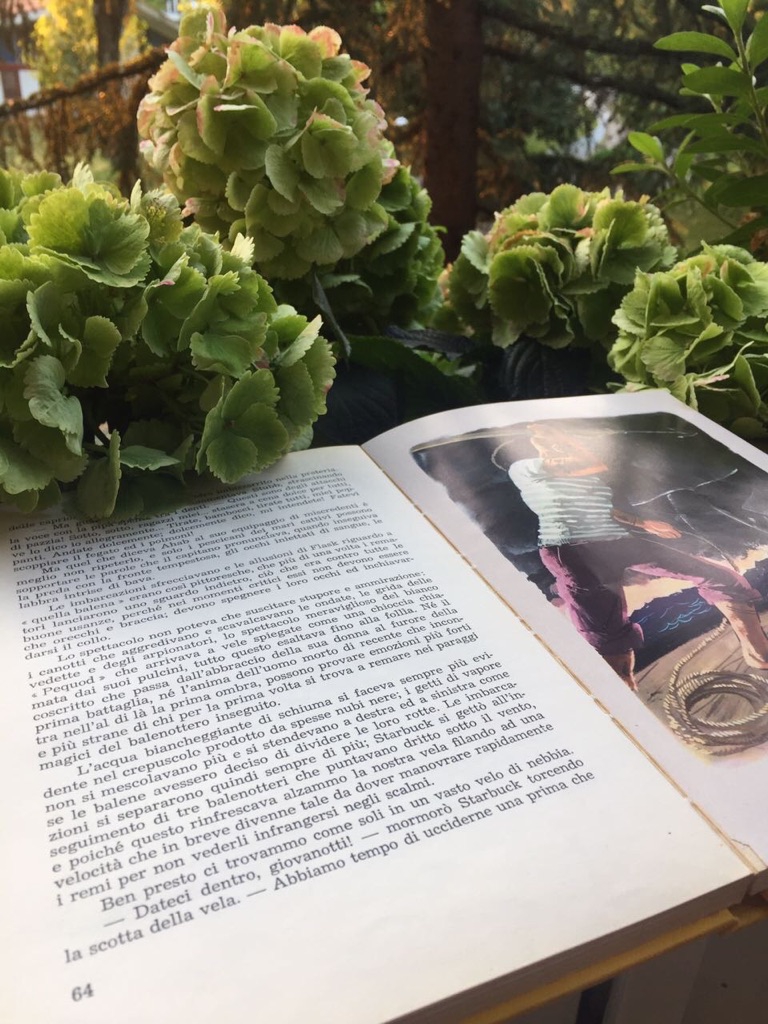
Moby Dick is one of those books that you’d read as a teenager and fascinates because of the adventure, storms, and chase over the seas.
The wrath of the white whale and that of Captain Achab involve us and leave us exhausted and with a sense of fatigue, as if we had participated in the struggle between the little man and the mighty animal.
Well, this magnificent book must be read over the years.
The captain's journey is that of every person in search of his own limit, the absolute, the fusion with the sublime. No mediocrity, only the strongest of passions drives us to face each situation, to get to touch what we want more than everything. The sense of overcoming the border belongs to us, in a not very wise way. It gets us obsessed, it molds us and it makes us do impossible undertakings. Almost.
Rebith is also merging with the unconditional, feeling free in the wild and immeasurable universe... because "impossible things one day, perhaps, may become possible".
Herman Melville – Moby-Dick or, The Whale
Italian edition – Oscar Mondadori
STORIES OF REBIRTH
Ceronetti, Not to forget the Memory
Memory, a precious companion on mankind’s path, is still largely unknown and is appreciated especially when one begins to get weak, when it has not yet vanished but is about to do so, leaving people in a state of terrifying disorientation.
The author, no longer young (he was born in 1927) and showing the first symptoms of discernment, calls all his experience and knowledge back to him to reveal a truly enviable wealth of life. The funny advices to mankind to "keep, preserve memory for as long as it lasts both in the old people as they feel the darkness of sunsets and in the young people before they get caught by early pathologies and psychic decay " range from literature to tongue-twisters and, above all, they warn against the E-Memory, a surrogate of reality that shakes young minds by making them slaves in the “stalinization” of thought.
Think about it, readers.
Guido Ceronetti, Not to forget the Memory
Italian edition: Adelphi
STORIES OF REBIRTH
#15 Jonathan Livingston Seagull
“Jonathan Seagull discovered that boredom and fear and anger are the reasons that a gull's life is so short, and with those gone from his thought, he lived a long fine life indeed.”
Jonathan teaches us to live in a perennial rebirth, be convinced that we’re different from the others because we tirelessly try to learn, without discouraging when facing others’ hostility. Being born again after every mistake, every failed attempt, being always ready to get up in the game, being surprised by our own limits, like they were not ours.
Like Jonathan, live happily trying to always improve yourself and sharing the freedom of your own choices.
Thanks Jonathan!
Jonathan Livingston Seagull by Richard Bach
Scribner publishing
STORIES OF REBIRTH
#14 Jorn de Précy, The Lost Garden
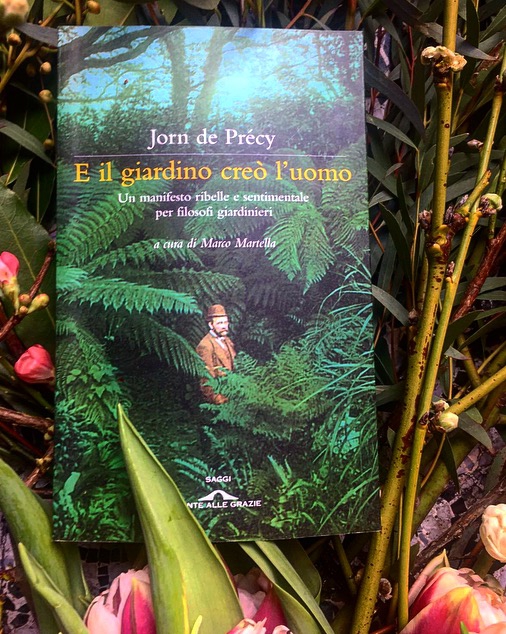
A passionate and even political memoir, a contemporary challenge through a vibrant and modern language, which Jorn de Précy invites us to: create gardens!
Real gardens, of course, indomitable, outlaw places. Gardens listening to the genius loci, where to find the true humanity that man will have to go back learning, creating with nature.
Yes, there are still enchanted shelters in this world, far from the perversions of civilization, in which we can find the dialogue and familiarity with nature, what makes us human and worthy of the good that life offers.
Go through gardens, in those abandoned and wild, and here’s a long list: Sceaux, Kelmscott, the Italian gardens, cradle of each poem, up to Greystone, the garden re-created by the author. Real places where the presence we perceive when we come in awakens something in us, calls us, maybe was waiting for us.
Go there but above all re-create them: wild gardens, always bustling, a concentrated of life.
Uninterrupted vital luxury (the Tao of the Chinese wise men, the Way, everything is in the Tao and trying to get away from Tao is just cause of unhappiness), the time of the garden is that of life that roots us in the here and now.
A slow, sweet, eternal present pregnant of Beauty. Create your wild garden and let yourself go, finding, without even realising it, the unity of your being.
Have yourself a Good Rebirth and a Pleasant Reading!
Jorn de Précy, The Lost Garden (1912)
Italian edition: Saggi Ponte delle Grazie

